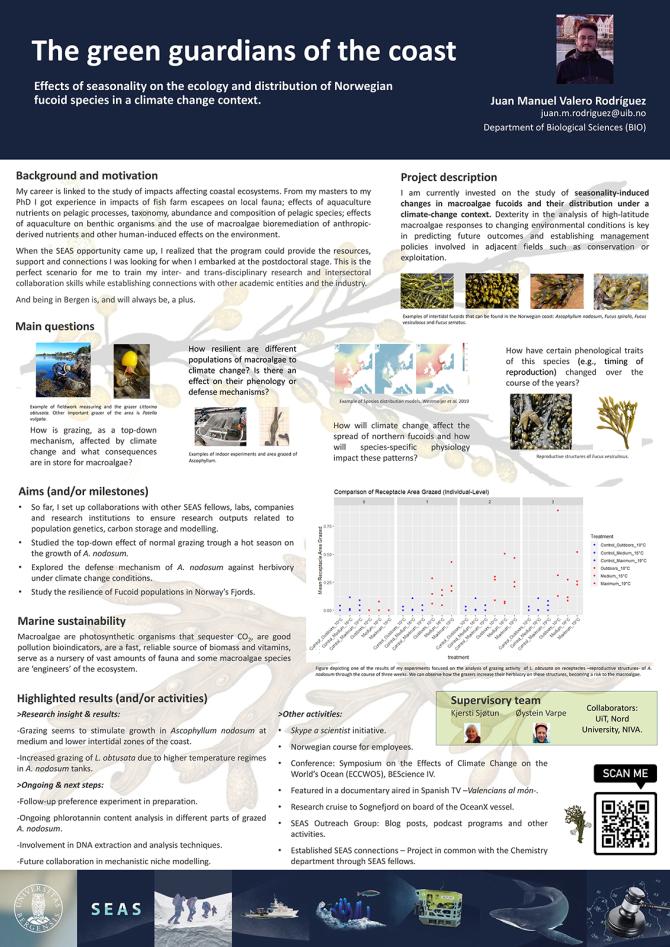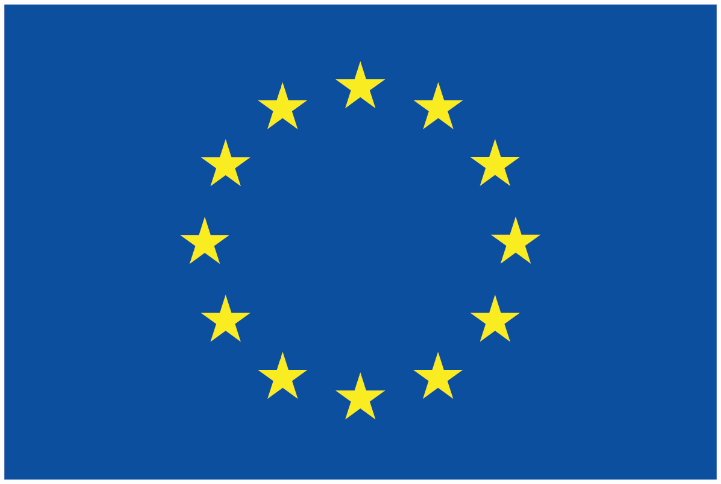“SEAS fellows are always open to scientific discussions”
The foremost advantage of the SEAS programme is its people, be it researchers or administration, says SEAS fellow Juan Manuel Valero Rodríguez. My fellow researchers are always open to having scientific discussions across our academic disciplines, finding new and interesting approaches.
Main content
"The study of the effect of climate change on algae brings about needed actions for the future of coastal ecosystems. Only by analyzing how severe our impacts are on such important food chain components can measures be taken to minimize their effects."
What attracted you to being a researcher and then to the SEAS programme?
When I started at university, I had no intention of becoming a researcher. I wanted a normal job away from academia. Out of nowhere I heard about the chance of joining a lab collaboration in Spain and I enjoyed the ride. Next thing I know I was on my way to Melbourne for my PhD and back for a short postdoc in the Mediterranean. It was then that I heard about the fantastic opportunity that the SEAS programme offered and applied with hopes of getting chosen.
Can you give a description in general terms of your SEAS project?
I am looking at the effect of climate change on coastal ecosystems. More specifically algae, the architects of the sea. They serve as the perfect shelter, hunting ground and nursery for countless species of fish, crustaceans and other valuable sea life. Without algae, the damage would be devastating, hence my efforts to know more about the impact that rising temperatures might bring about over these fascinating organisms.
In order to achieve this objective, I used a combination of classical ecological techniques and modern laboratory procedures during these last 3 years -the best of both worlds-.
Are you seeing any results that might also give you a way forward in your future research?
Fortunately, I have already closed sampling periods of different experiments from when I started and expect to see the results out there soon. I don’t know about my future employability yet; you’ll have to ask me next year to know.
What kind of field work have you done during the SEAS programme and how would you describe the experience?
I would classify this period as ‘a time for expansion’ for me. I was lucky enough to contact several working teams for my projects, be it from UiB or from the list of SEAS collaborators.
I also had a lot of boat time for my sampling sessions, both in motorboats and research ships. Incidentally, I was fortunate enough to be chosen for the Ocean X initiative when the vessel came by Norway to investigate the fjords. Totally recommended to anyone wondering about it. A lot of time has been spent in labs, either with DNA techniques or simulations indoors. And finally, a huge amount of time learning new techniques through university courses, apart from my teaching duties.
| Photos below: From field to lab - Juan has taken part in research cruises, including here on the OceanXplorer (left), but is often to be found in the lab - here in the labs of his collaborators at NIVA (right). |

Photo:
Juan Manuel Valero Rodríguez
| 
Photo:
Juan Manuel Valero Rodríguez
|
What have been the pros and cons of the SEAS programme in terms of resources, in terms of community, or in terms of cooperation with industry and society at large?
This programme has a lot of advantages but alas, certain protocols and forms are outdated - most of the times following EU instructions. Generally, we have solved most of the problems satisfactorily.
The foremost advantage of the SEAS programme is its people, be it researchers or administration. My fellow researchers are always open to having scientific discussions across our academic disciplines, finding new and interesting approaches. And the administrative team has always been there for us, sometimes doing way more than what was expected from them. Thanks to these pros we had a fair number of chances to engage in events with different industry partners, interesting speakers and enjoyable retreats. For that they have my thanks. Now and always.
What has been your experience of being located in Bergen?
I am a rain lover so you can guess already how much I enjoy this location. It is neither a huge city nor a small one and the delight that I find in that balance is superb. Not to mention the mesmerizing nature that surrounds everything. It is like living in a postcard all year round.
In what ways have you found the interdisciplinary aspects of the SEAS project to be a contribution to your project?
In many. Certain projects involved people from other departments and my SEAS companions were the perfect link for it. Considerable parts of my papers employ techniques mastered by other departments (e.g.: chemistry) and other postdocs introduced me to the appropriate people or collaborated themselves directly - thanks for the field help, people. I owe you a lot.
| Photos below: Juan has often managed to recruit his SEAS colleagues for a spot of fieldwork and sampling - here with Liaqat Zeb (left) and Virginie Comorge (right) |

Photo:
Juan Manuel Valero Rodríguez
| 
Photo:
Juan Manuel Valero Rodríguez
|
In what ways does your project connect to the UN sustainability goals, or otherwise connect to the topic of marine sustainability?
My projects directly relate to two main goals:
Goal 13: To take urgent action to combat climate change and its impacts
Goal 14: To conserve and sustainably use the oceans, seas and marine resources for sustainable development.
The study of the effect of climate change on algae brings about needed actions for the future of coastal ecosystems. Only by analyzing how severe our impacts are on such important food chain components can measures be taken to minimize their effects.
How do you spend your free time?
In which plane of reality would one think of researchers as people with ‘free time’? 😊
Now for real, I enjoy reading, pub and table games, nature. I go to the gym sometimes, have friends over for dinner and dance with my wife occasionally. Nothing out of the ordinary (does making my own algae herbarium count? Sometimes job-related activities and free time cross paths).
Where do you see yourself in 5 – 10 years?
That’s the golden question. As scientific nomads many postdoctoral workers suffer from the curse of non-permanent positions. It is our task to look for the next steps, but it takes time and dedication. Personally, I would like to still be involved in research in one way or another but one never knows how life will turn out.







